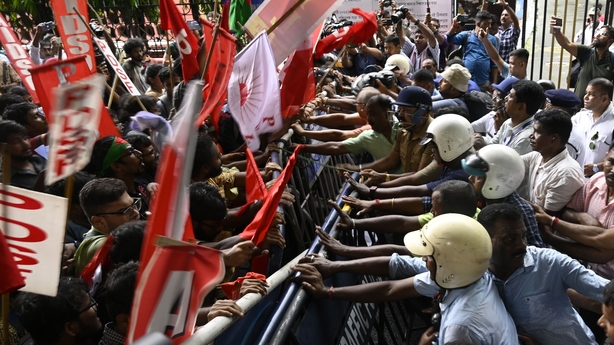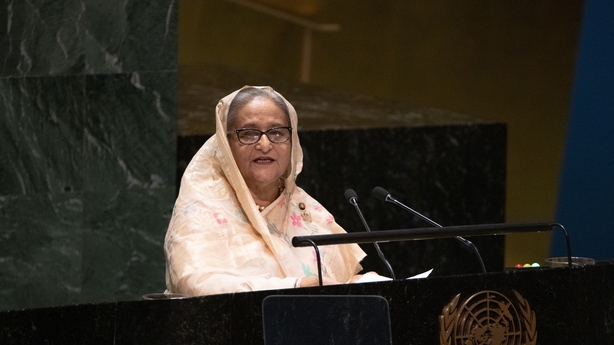Bangladesh's Supreme Court has scrapped most of the quotas on government jobs that have sparked student-led protests in which at least 114 people have been killed in the south Asian country, local media has reported.
The court's Appellate Division dismissed a lower court order that had reinstated the quotas, directing that 93% of government jobs will be open to candidates on merit, without quotas, the reports said.
Prime Minister Sheikh Hasina's government had scrapped the quota system in 2018, but the lower court reinstated it last month, sparking the protests and an ensuring government crackdown.
It was not immediately clear how the protesters would react to the decision.
The government had extended a curfew as authorities braced for the Supreme Court hearing on the job quotas. Soldiers were on patrol on the streets of capital Dhaka, the centre of the demonstrations that spiralled into clashes between protesters and security forces.
Internet and text message services in Bangladesh have been suspended since Thursday, cutting the nation off as police cracked down on protesters who defied a ban on public gatherings.
The curfew was extended to 3pm (10am Irish time) and was to continue for an "uncertain time" following a two-hour break for people to gather supplies, local media reported.
Reuters could not immediately determine what would happen to the curfew after the ruling.
Soldiers are patrolling cities across Bangladesh after riot police failed to restore order, while a nationwide internet blackout since Thursday has drastically restricted the flow of information to the outside world.

Ms Hasina, whose opponents accuse her government of bending the judiciary to her will, hinted to the public this week that the scheme would be scrapped.
However, after the mounting crackdown and a rising death toll, a favourable verdict is unlikely to mollify white-hot public anger.
"It's not about the rights of the students anymore," business owner Hasibul Sheikh, 24, told AFP at the scene of a street protest, held in the capital Dhaka in defiance of a nationwide curfew.
"Our demand is one point now, and that's the resignation of the government," he added.
The catalyst for this month's unrest is a system that reserves more than half of civil service posts for specific groups, including children of veterans from the country's 1971 liberation war against Pakistan.
Critics say the scheme benefits families loyal to Ms Hasina, 76, who has ruled the country since 2009 and won her fourth consecutive election in January after a vote without genuine opposition.

Ms Hasina's government is accused by rights groups of misusing state institutions to entrench its hold on power and stamp out dissent, including by the extrajudicial killing of opposition activists.
Made the situation worse
With Bangladesh unable to provide adequate employment opportunities for its 170 million people, the quota scheme is a pronounced source of resentment among young graduates facing an acute jobs crisis.
Ms Hasina inflamed tensions this month by likening protesters to the Bangladeshis who had collaborated with Pakistan during the country's independence war.
"Rather than try to address the protesters' grievances, the government's actions have made the situation worse," Crisis Group's Asia director Pierre Prakash told AFP.
Ms Hasina had been due to leave the country today for a diplomatic tour to Spain and Brazil but abandoned her plans after a week of escalating violence.
Since Tuesday at least 133 people, including several police officers, have been killed in clashes around the country, according to an AFP count of victims reported by police and hospitals.
The US State Department warned Americans not to travel to Bangladesh and said it would begin removing some diplomats and their families from the country due to the civil unrest.

